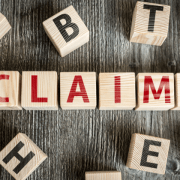HM Revenue and Customs are warning that scammers are targeting people filing their tax returns in new scam.
Criminals are yet again posing as HMRC in another scam sending out realistic looking text messages to people completing their tax returns. Every year the government department issues thousands of SMS messages and emails as part of its annual reminder to those who are self-employed. The annual tax return deadline is January 31, 2021, and HMRC are reporting a sharp increase in people being contacted by fraudsters.
Fraudsters are using realistic looking emails and texts to contact those who are self-employed, making it very difficult for people to tell the difference. Once they have obtained personal information, they are calling people up and claiming they are eligible for a ‘tax rebate’, once they have their bank information, they can steal money from victims accounts.
HMRC say that over the last 12 months they have received 846,000 complaints from members of the public about suspicious emails and texts and this is believed to be the tip of the iceberg. Most scams send emails or texts out informing customers that they are owed a fake rebate or a tax refund. Fraudsters lure people in and convince them to hand over personal information like bank account details, name, address and even National Insurance numbers. They will then attempt to steal money from people’s accounts. In addition to these fraudsters create what is known as ‘sucker lists’ which supplies personal information of potential victims which is then sold amongst criminals on the dark web. Once a victim has been targeted it is likely they will then be targeted multiple times once their name has made its way onto a sucker list.
HMRC’s Interim Director General for Customer Services, Karl Khan, said:
“We know that criminals take advantage of the Self-Assessment deadline to panic customers into sharing their personal or financial details and even paying bogus ‘tax due’. If someone calls, emails or texts claiming to be from HMRC, offering financial help or asking for money, it might be a scam. Please take a moment to think before parting with any private information or money.”
Ways to spot a tax scam
It could be a scam if it:
- is unexpected
- offers a refund, tax rebate or grant
- asks for personal information like bank details
- is threatening
- tells you to transfer money.
Self-Assessment customers can complete their tax return online and help and support is available on GOV.UK.
To protect against identity fraud customers must verify their identity when accessing HMRC’s online services. They must have two sources of information including:
- credit reference agency data
- tax credits
- P60/payslip
- UK Passport









Leave a Reply
Want to join the discussion?Feel free to contribute!